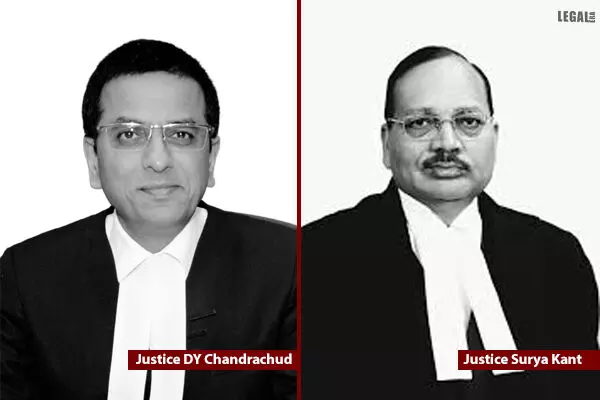- Home
- News
- Articles+
- Aerospace
- Artificial Intelligence
- Agriculture
- Alternate Dispute Resolution
- Arbitration & Mediation
- Banking and Finance
- Bankruptcy
- Book Review
- Bribery & Corruption
- Commercial Litigation
- Competition Law
- Conference Reports
- Consumer Products
- Contract
- Corporate Governance
- Corporate Law
- Covid-19
- Cryptocurrency
- Cybersecurity
- Data Protection
- Defence
- Digital Economy
- E-commerce
- Employment Law
- Energy and Natural Resources
- Entertainment and Sports Law
- Environmental Law
- Environmental, Social, and Governance
- Foreign Direct Investment
- Food and Beverage
- Gaming
- Health Care
- IBC Diaries
- In Focus
- Inclusion & Diversity
- Insurance Law
- Intellectual Property
- International Law
- IP & Tech Era
- Know the Law
- Labour Laws
- Law & Policy and Regulation
- Litigation
- Litigation Funding
- Manufacturing
- Mergers & Acquisitions
- NFTs
- Privacy
- Private Equity
- Project Finance
- Real Estate
- Risk and Compliance
- Student Corner
- Take On Board
- Tax
- Technology Media and Telecom
- Tributes
- Viewpoint
- Zoom In
- Law Firms
- In-House
- Rankings
- E-Magazine
- Legal Era TV
- Events
- Middle East
- Africa
- News
- Articles
- Aerospace
- Artificial Intelligence
- Agriculture
- Alternate Dispute Resolution
- Arbitration & Mediation
- Banking and Finance
- Bankruptcy
- Book Review
- Bribery & Corruption
- Commercial Litigation
- Competition Law
- Conference Reports
- Consumer Products
- Contract
- Corporate Governance
- Corporate Law
- Covid-19
- Cryptocurrency
- Cybersecurity
- Data Protection
- Defence
- Digital Economy
- E-commerce
- Employment Law
- Energy and Natural Resources
- Entertainment and Sports Law
- Environmental Law
- Environmental, Social, and Governance
- Foreign Direct Investment
- Food and Beverage
- Gaming
- Health Care
- IBC Diaries
- In Focus
- Inclusion & Diversity
- Insurance Law
- Intellectual Property
- International Law
- IP & Tech Era
- Know the Law
- Labour Laws
- Law & Policy and Regulation
- Litigation
- Litigation Funding
- Manufacturing
- Mergers & Acquisitions
- NFTs
- Privacy
- Private Equity
- Project Finance
- Real Estate
- Risk and Compliance
- Student Corner
- Take On Board
- Tax
- Technology Media and Telecom
- Tributes
- Viewpoint
- Zoom In
- Law Firms
- In-House
- Rankings
- E-Magazine
- Legal Era TV
- Events
- Middle East
- Africa
Supreme Court rejects Central government's plea

Supreme Court rejects Central government's plea
The Centre sought permission to withdraw the plea with liberty to pursue the remedies in law
The Supreme Court has declined the Government of India's plea that urged the court to recall its order directing the Central Bureau of Investigation (CBI) to register a regular case on the disinvestment of the 26 per cent equity in the Hindustan Zinc Limited (HZL) in 2002.
A division bench of Justice DY Chandrachud and Justice Surya Kant observed that since the court had found sufficient evidence for the issuance of the direction, the Centre had no right to move a miscellaneous application.
The government had claimed it wanted to establish before the court that there was no sufficient material to issue such directions.
The court was hearing a miscellaneous application moved by the Central government claiming that the facts and the arguments made by the CBI before the court were incorrect.
In 2021, the apex court had allowed the government to disinvest the remaining 29.5 per cent of its shares in HZL, as it was no more a government-owned company.
Appearing on behalf of the government, Solicitor General Tushar Mehta clarified that the application was not filed to point out that the top court had committed a mistake. It was only to highlight that the CBI had submitted certain incorrect facts before the court.
Justice Chandrachud remarked, "Take for example, if in the case of seniority, this court says 'A' should get seniority over 'B' and that too without hearing 'B', I can understand 'B' moving a recall application claiming that the order of seniority was passed without hearing him."
Refusing to entertain the plea and allowing the Centre to withdraw it, Justice Chandrachud stated that earlier the government had not raised any objections with the file submitted by the CBI that led to the passing of the directions.



